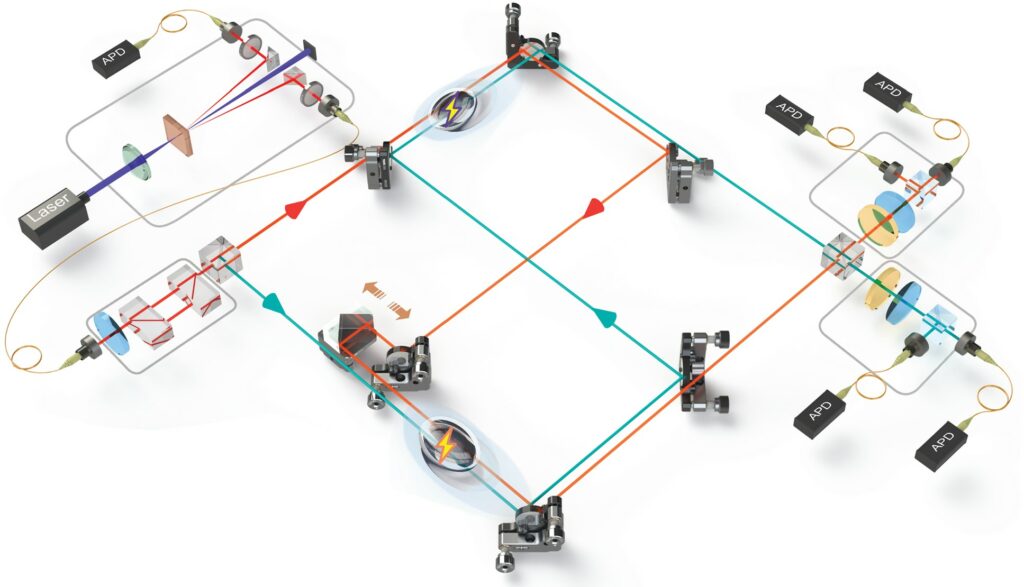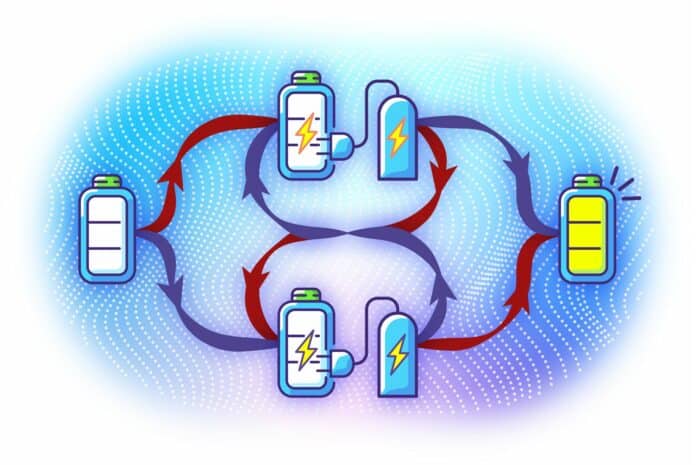Regular batteries in devices like smartphones use chemicals like lithium to store energy. On the other hand, Quantum batteries use tiny particles, often arrays of atoms. Unlike regular batteries that follow classical physics, these microscopic particles operate based on quantum principles. Scientists are exploring how these quantum particles can challenge our usual understanding, especially regarding time. It opens up new possibilities for energy storage in small devices.
Quantum batteries, which leverage quantum phenomena for power gain, distribution, and storage, have the potential to outperform traditional chemical batteries in specific low-power applications. Researchers, including those from the University of Tokyo, have utilized an unconventional quantum process that challenges the usual understanding of causality to enhance the performance of quantum batteries.
This advancement brings us a step closer to making quantum batteries a practical and efficient technology for the future.

Quantum batteries are currently experimental and exist in laboratory settings. Researchers worldwide are collaborating on various aspects to create a fully functional and practical application in the future. At the University of Tokyo, graduate student Yuanbo Chen and Associate Professor Yoshihiko Hasegawa from the Department of Information and Communication Engineering specifically focus on determining the optimal method for charging a quantum battery. Efficient charging is crucial for the effectiveness of quantum batteries, and their research involves exploring the role of time in this process.
In the study, scientists experimented with ways to charge a quantum battery using optical apparatuses such as lasers, lenses, and mirrors. However, the way they achieved it necessitated a quantum effect where events are not causally connected the way everyday things are.
Traditionally, quantum batteries were charged through a sequence of setting stages performed one after another. In this study, the research team employed a unique quantum effect called indefinite causal order (ICO).
In classical systems, causality follows a definite path, meaning if event A leads to event B, the possibility of B causing A is ruled out. However, at the quantum scale, ICO allows both directions of causality to coexist in a state called quantum superposition, where both possibilities can be simultaneously actual.
Graduate student Yuanbo Chen said, “With ICO, we demonstrated that how you charge a battery made up of quantum particles could drastically impact its performance.”
“We saw huge gains in both the energy stored in the system and the thermal efficiency. And somewhat counterintuitively, we discovered the surprising effect of an interaction that’s the inverse of what you might expect: A lower-power charger could provide higher energies with greater efficiency than a comparably higher-power charger using the same apparatus.”
The investigation into the phenomenon of indefinite causal order (ICO) conducted by the research team may have applications beyond charging next-generation low-power devices. The underlying principles, particularly the inverse interaction effect discovered, could enhance the performance of various thermodynamics-related tasks or processes involving heat transfer. An example is the potential application in solar panels, where ICO might be employed to counteract heat effects and improve efficiency instead of being hindered.
Journal Reference:
- Gaoyan Zhu, Yuanbo Chen, Yoshihiko Hasegawa, and Peng Xue, “Charging Quantum Batteries via Indefinite Causal Order: Theory and Experiment,” Physical Review Letters: December 13, 2023, DOI: 10.1103/PhysRevLett.131.240401
